Last Updated: June 20, 2025
If you’re looking for an off-the-beaten-path nature experience in Costa Rica’s northern lowlands, Tirimbina Biological Reserve should be on your list. This private reserve and research station near Puerto Viejo de Sarapiqui offers excellent wildlife viewing, well-maintained trails, and a long hanging bridge over the Sarapiqui River. During our visit to Tirimbina, we were impressed by the biodiversity and peaceful setting away from the usual tourist crowds. Below are our tips for exploring the reserve and staying at the on-site eco-lodge.
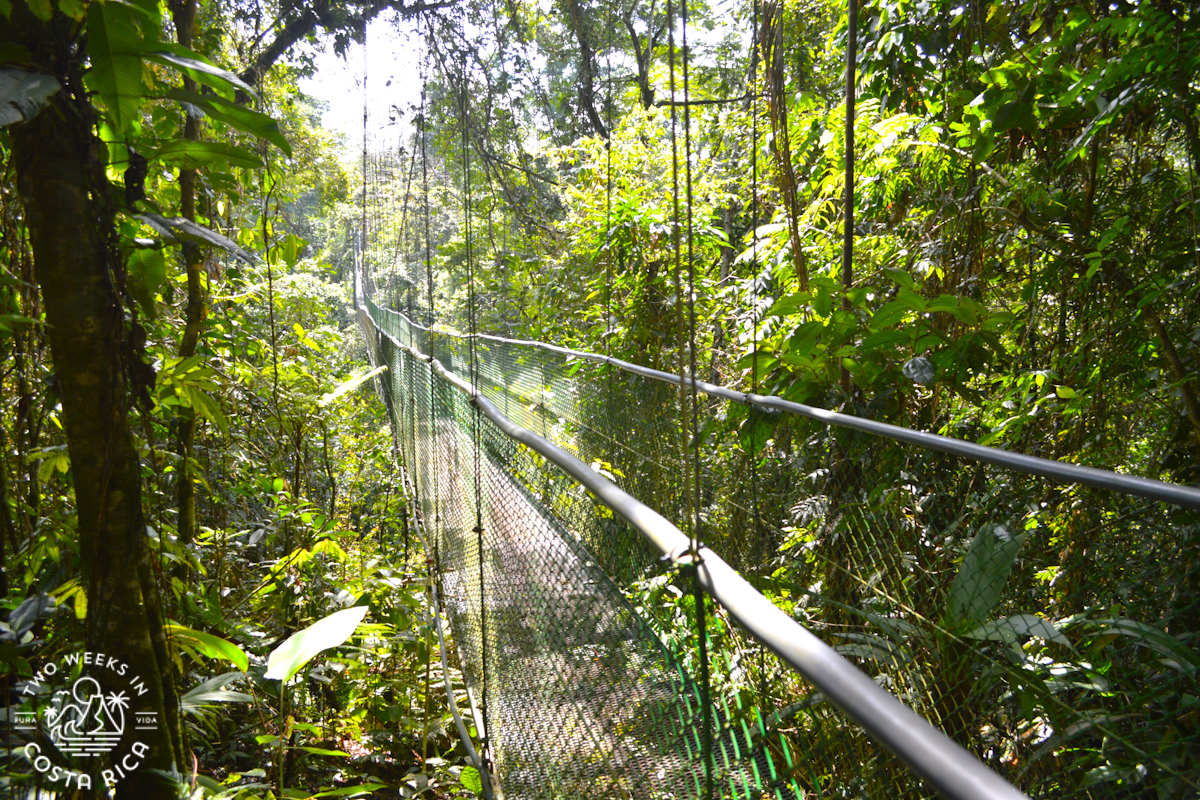
Overview
What’s unique about the Sarapiqui region of Costa Rica is that it sits relatively low in elevation and has several rivers. These large rivers converge in Puerto Viejo de Sarapiqui, the biggest town in the area.
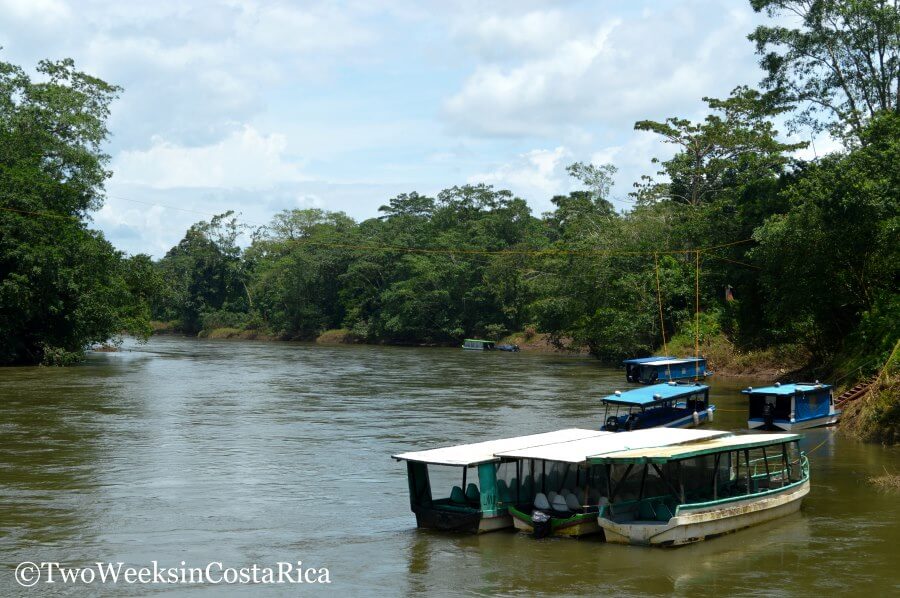
Around these waters is a mix of farmland and protected tropical forest. It’s in these vast swaths of humid jungle that a lot of environmental research takes place.
Scientists and university students from around Costa Rica and the world come to study everything from birds, bats, and bees, to trees, ferns, snakes, and frogs. Luckily, most of the reserves also have trails for casual nature enthusiasts like us.
Tirimbina is one such spot near the small town of La Virgen. It has a biological reserve, research center, and lodge right on-site.
Tirimbina’s Reserve
Background
Tirimbina protects 345 hectares (852 acres) of pre-montane tropical forest, which hosts a wide array of different ecosystems.
What appealed to us were the easy-to-access network of trails, massive hanging bridge, and impressive birding statistics.
Those of you who follow our blog know that we didn’t come to Costa Rica as birders, but now break out the binoculars at every fleeting chirp. Needless to say, we were ecstatic at the chance to see some of the 132 different bird species that have been spotted on the property.
What We Saw
As soon as we entered Tirimbina, we understood why the nature viewing was so good. The area around the entrance had been planted with lots of fruiting trees and shrubs that attract wildlife. The neighboring jungle was lush as well.
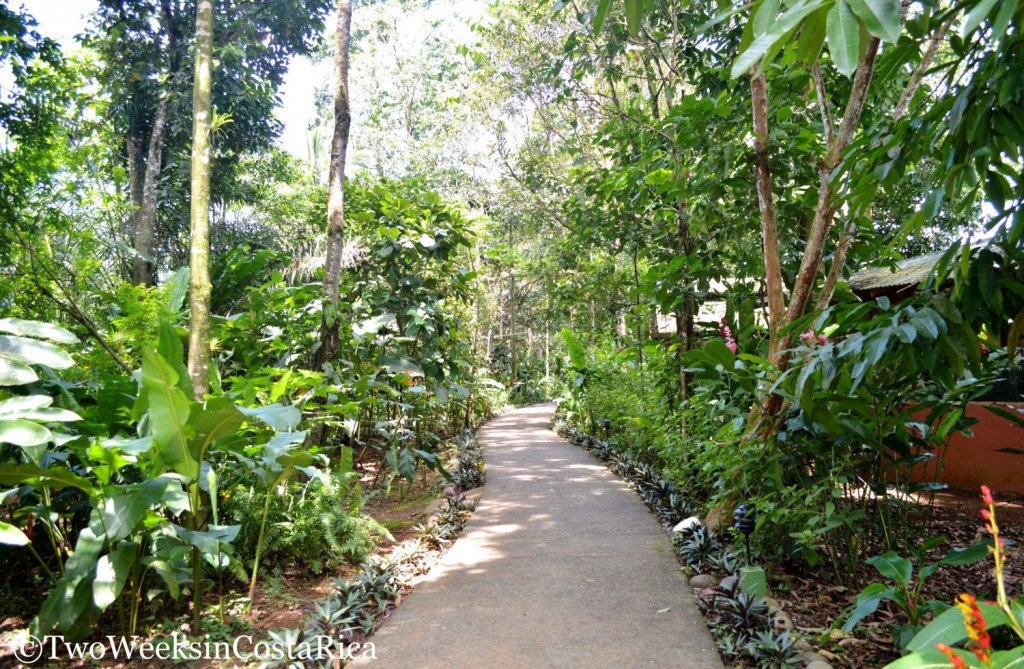
We didn’t have to go far before seeing dozens of birds, including a Keel-billed Toucan, butterflies, some howler monkeys, and a sloth.
Following the paths toward the river, we came to the hanging bridge. We’ve been on a lot of hanging bridges in Costa Rica, but this was one of the most impressive. It is really long, stretching about 200 meters (650 feet) over the raging Sarapiqui River (popular for whitewater rafting and float tours). It even has a spiral staircase halfway across that leads down to a small jungle-covered island.
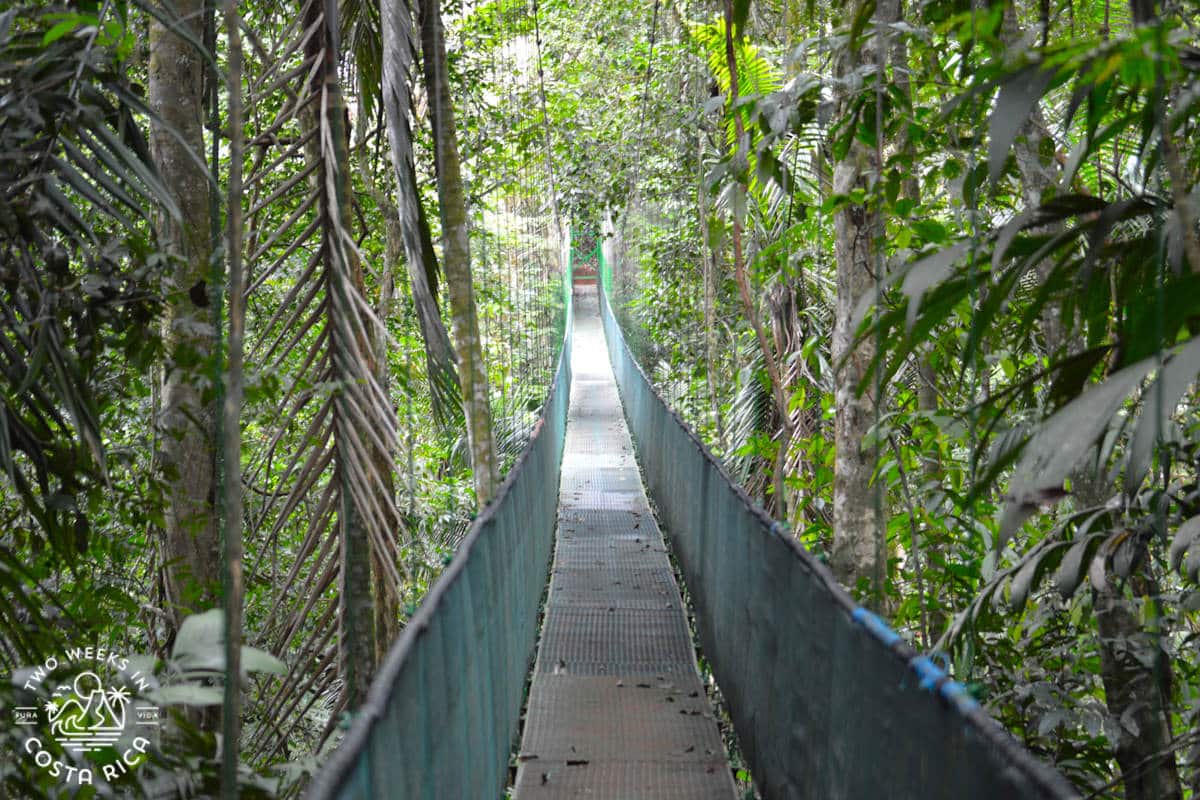
Once we crossed the bridge, we continued on and explored the four trails, trekking across a smaller hanging bridge and through different levels of the forest.
Along the paths, we were able to spot more birds like Blue-gray Tanagers, Broad-billed Mot Mots (our first sighting ever!), Scarlet-rumped Tanagers, and different kinds of warblers and hummingbirds.
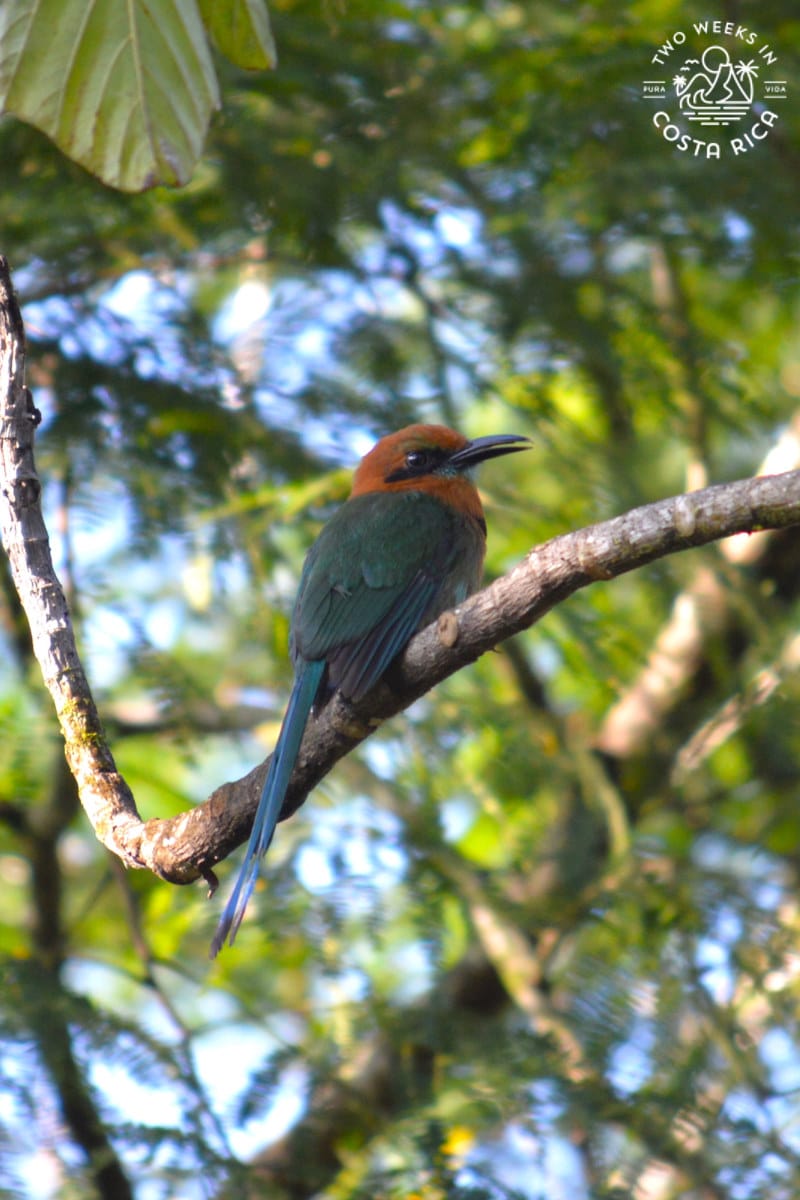
We also saw some large (and creepy) spiders, the tracks of a jungle cat, leaf-cutter ants, some frogs, an iguana, bullet ants, and many spectacular trees and plants.
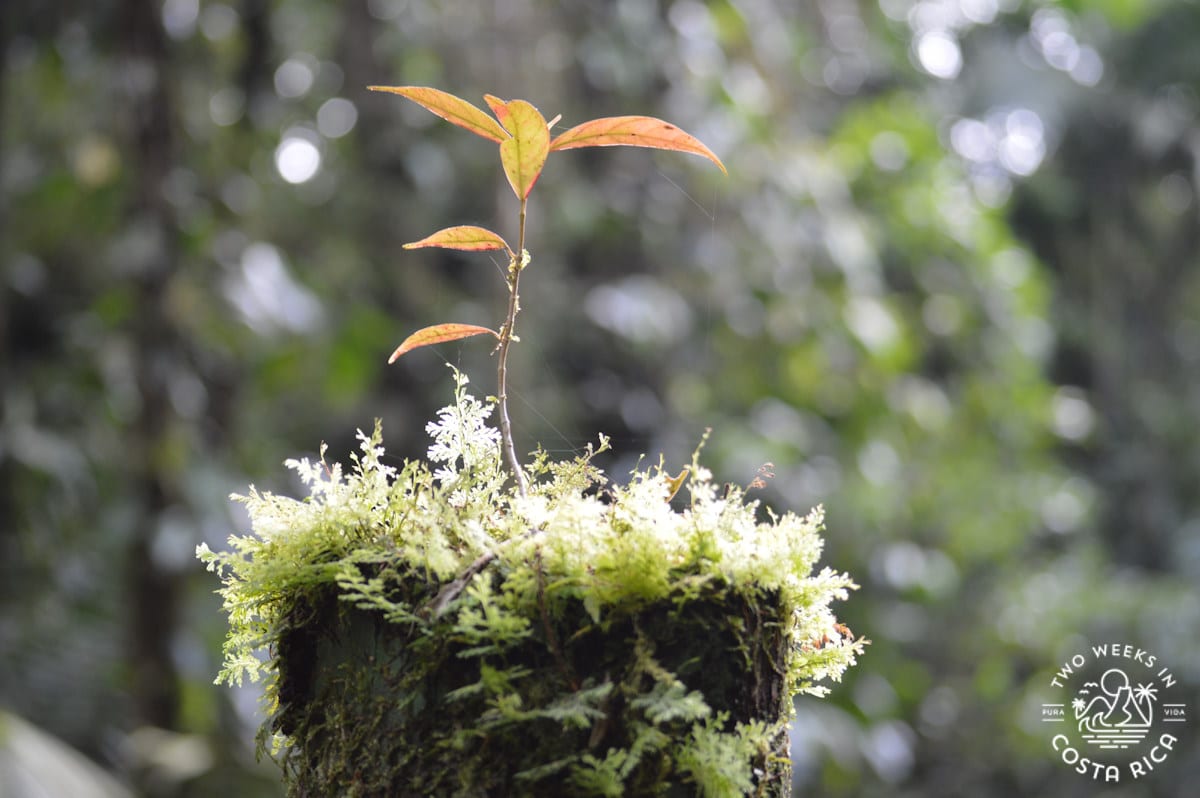
Just as we were crossing back over the river, an afternoon thunderstorm rolled in and brought more of the rain that is typical for this wet area of the country.
As we hustled back to our room, we got to see the animals getting ready for the storm too. The howler monkeys began making their deep grunts, the sloth we saw earlier was hunkering down under a branch, and the birds were calling and taking roost in the treetops.
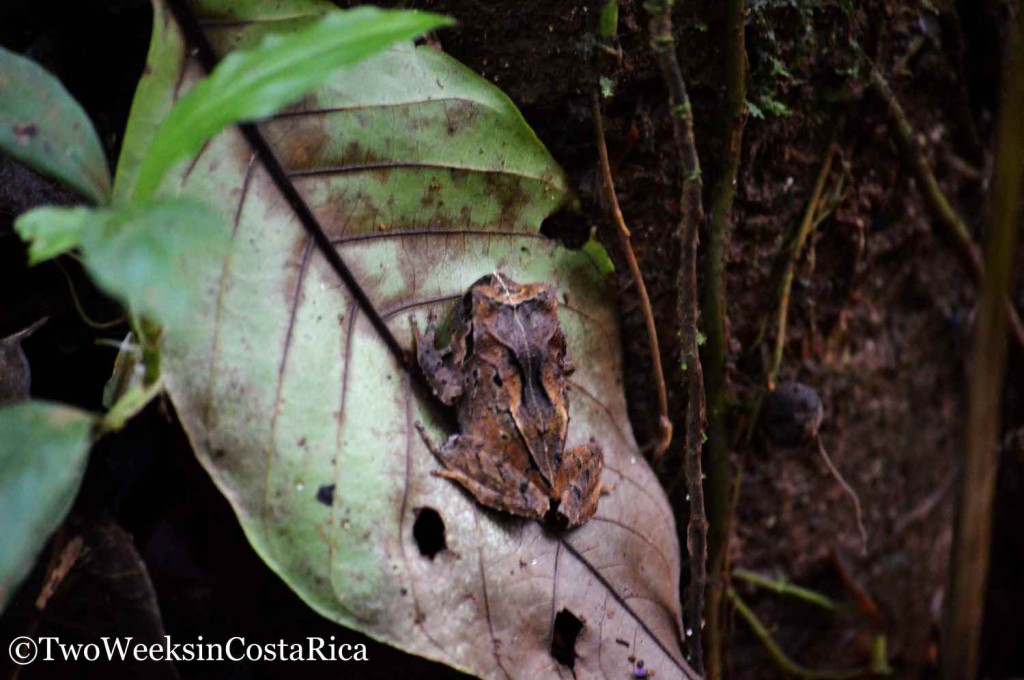
Trail Details
Tirimbina has 9 kilometers (5.5 miles) of trails. Our favorite was the Corteza because it was the most remote.
Other than that trail, which goes deeper into the jungle, the trails are fairly flat and good for all fitness levels and kids. It took us about three hours to explore the whole reserve.
Tip: While the hike isn’t too difficult, we recommend closed-toe sneakers or hiking boots. We almost stepped on a bullet ant a couple of times and were glad to be wearing boots. See our post Packing Your Daypack for Costa Rica for more tips on what to bring.
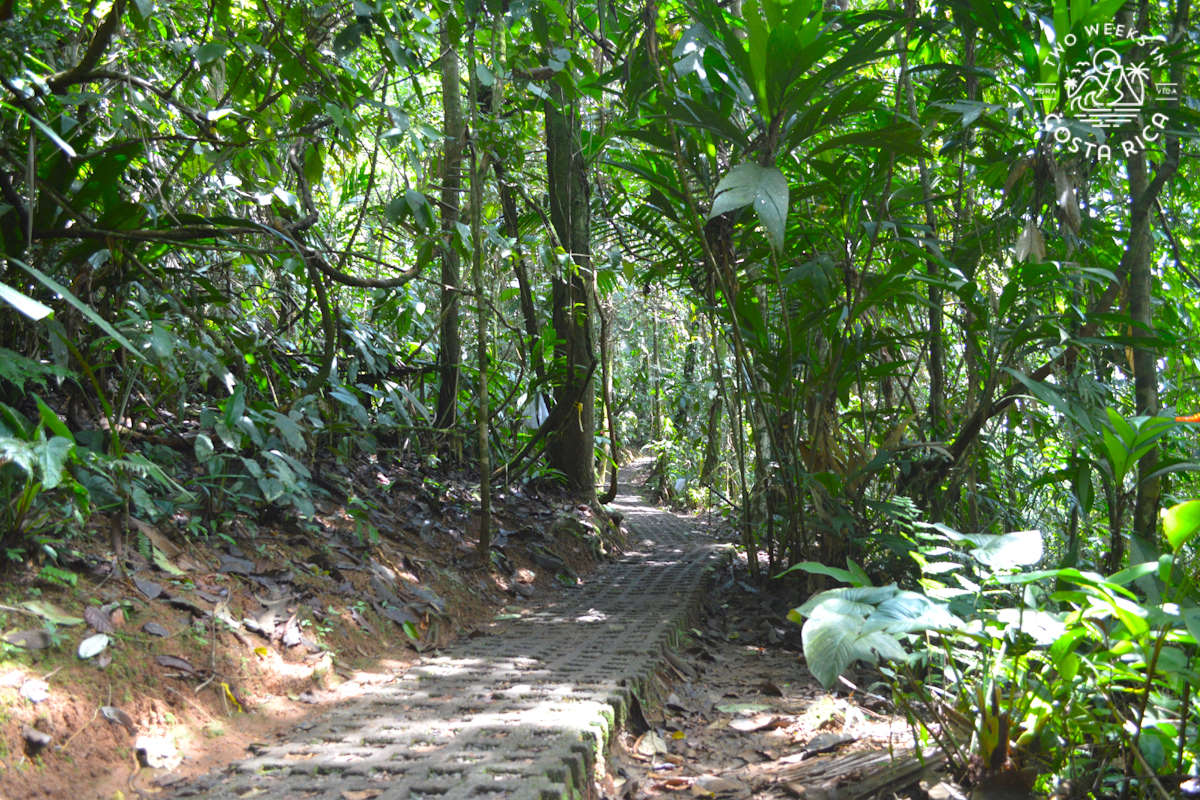
Tirimbina Rainforest Lodge
The rustic lodge at Tirimbina is surrounded by rainforest. We loved being able to roll out of bed and explore the trails around the garden before anyone else arrived.
Sustainability
Something else we liked was Tirimbina’s commitment to sustainability. Costa Rica has a lot of eco-lodges but sometimes it’s questionable how eco-friendly they actually are. [See our post on Sustainable Hotels for more eco-friendly hotels in Costa Rica.]
The lodge at Tirimbina used an onsite bio-digester for wastewater, solar hot water system for the rooms, and composted, recycled, and encouraged energy efficiency. They also work with area schools to teach local kids about conservation.
Room Options
Tirimbina has two types of rooms for non-researchers. We recommend the deluxe rooms over the very simple standard ones for a more comfortable stay. With a reservation, you are also given free access to the trails and a nice breakfast.
Check Rates and Availability at Tirimbina Lodge.
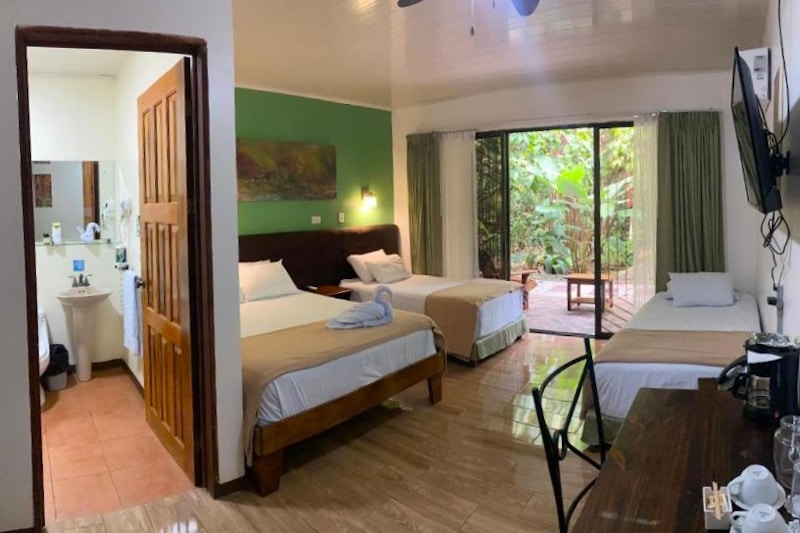
Planning Your Visit to Tirimbina Reserve
Tickets
Admission is $23/adult, $15/child.
Guided tours are also available. They have a general natural history walk and birdwatching tour.
Hours
The reserve is open daily from 6:00 a.m. to 5:00 p.m.
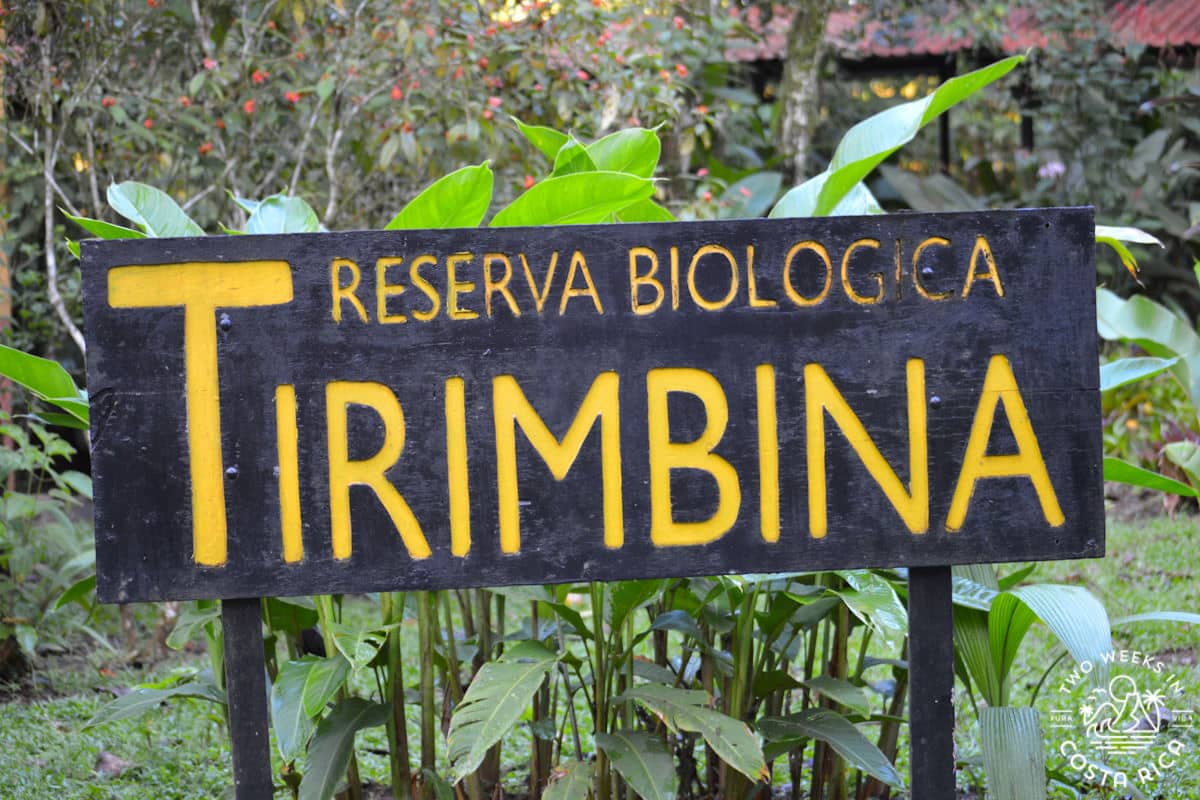
Conclusion
We loved our visit to Puerto Viejo de Sarapiqui and the Tirimbina Reserve. This ecologically rich area of Costa Rica is often overlooked by travelers but has so much to offer nature enthusiasts. We hope you’ll consider adding it to your Costa Rica itinerary.
Please note that if you book a stay at Tirimbina Rainforest Lodge using one of our links to booking.com, we receive a small commission at no extra cost to you. Read our Privacy Policy for more information.
Have a question about visiting Tirimbina Reserve? Ask us below.
Looking for more information to plan your trip? Check out these posts:
Catarata del Toro: This is a beautiful waterfall near Bajos del Toro that flows into a dormant volcanic crater. You can easily visit it on a day trip from the Sarapiqui area.
La Fortuna: What to Expect – Many travelers pair a visit to Sarapiqui with a stop in La Fortuna near Arenal Volcano. La Fortuna is the adventure capital of Costa Rica but also has a lot of nature activities.
The Truth About Visiting Poas Volcano: Thinking of visiting the active Poas before you go to Sarapiqui? Check out this post to learn what to expect.
Things to Do: Looking for more activity ideas? Our Things to Do category gives 150+ options for everything from coffee and chocolate tours to the best zip-line experiences for families.



